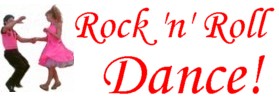Is "You Lead" a fair call?
Posted by: Gareth on: 24/10/2013 Category: general
You Lead, (you wicked woman), but is this a fair?
Traditionally, the man leads in most types of dance. Most women don't seem to mind, being more concerned about how he leads rather than whether or not he does. Sophisticated women dancers seem to regard following as another form of leading, anyway. Good male leads also do a great deal of following.

Most men are mainly concerned about leading. Few of them can adapt to the 'follow' role. There are some very good reasons for this gender-role allocation that are not related to any special leadership talents of men. More of those in another article.
What we are concerned with here is the classic and very common cry of a man during dancing of "You led!" (How dare you?)
I am convinced that there's more to this than meets the eye!
Accurate description is important
Misdescription of what takes place between humans at any time is very common. It can can be dangerous and destructive.It results in people being on 'different pages' as the modern saying goes. Mostly, this occurs through the fuzzy complexity of what is being described. It's all too easy to superficially observe what appears to take place, then label the occurrence according to what is believed to have been seen instead of delaying judgement and carefully considering what might actually have happened.I believe this is exactly what gives rise to many accusations of a women leading while dancing. The man accuses the woman of having usurped his authority and decided for herself what she will do next, forcing him to follow her. This accusation is very often false.
Women who virtually always follow in dance don't suddenly decide to lead for no reason. What they do in reality is go off half-cocked. Like starters in a race who jump the gun, they can be nervous and on edge, inclined to spring at the slightest provocation.
Women pitch into a spin or a turn at the merest hint of a lead, whether real or imagined. For the man, this can be quite disconcerting. In freestyle dance he must analyse many things at once. Among them are precisely where the woman is at any particular point, the speed of the song and the close proximity of other dancers.
When the woman charges into a move which he has neither intentionally signalled nor considered making, the difficult job of effective leading becomes a lot harder. What often happens next is that the man himself then goes off half-cocked. He accuses the woman of having taken over, something she has not intentionally done. Her nerves have simply got the better of her, causing her to respond to a signal that she either imagined or misinterpreted. This does not amount to a deliberate 'lead'.
Note that this occurrence is distinct from two other tendencies. One is that some men give sadly inadequate leads, inviting the woman to take control as she has no other option.
The other option is that some women do completely ignore the lead-follow relationship and just do what they want. Frankly, these women do very little dancing. They find willing partners largely impossible to get.
Relaxation as a solution to "you lead!"
One of my favourite axes to grind is the highly over-looked, but entirely necessary factor of being relaxed while dancing. Many beginners and even experienced dancers fail to do this despite there being some pretty good reasons for it.
Firstly, relaxed dancers are far more effective. Dance is a visual art as well as a physical activity. Participants usually want to look good. Their performance will be far more aesthetically pleasing if they are relaxed rather than tense. They will balance themselves more easily and their movements will be smooth, free-flowing and accurate rather than restricted, jerky and erratic. Some people's composure goes to the extent of actually being taut. This makes effective dancing almost impossible.
The next reason is quite simply that in fast, energetic dance such as Rock 'n' Roll, being tense can cause injury. It is impossible for dancers to accurately gauge how much strength and energy they are putting into their moves when their muscles are tight. If they over-do it, they can cause themselves or their partners obvious injuries or insidious skeleto-muscular damage.
The third reason, which I particularly want to highlight, is the surprisingly less-than-obvious fact that two people working together in a fast and energetic physical performance need to relax or else the potential for misinterpreted communication between them is very great. This really is the crux of the matter. The more a dancing couple relax, the more likely they will understand signals gestured through hand movement, body language and facial expressions.
It's highly important to recognize truth in these sorts of issues. Failure to do so consigns us to continued difficulties.
Having identified the problem, we need to solve it. That can be far from easy with a nervously pre-empting woman dancer. Her tenseness is likely to have become a habitual response to the dance situation. Hard though it may be, she needs to break the habit. It becomes harder still when she is falsely accused of doing something untoward. That will likely compound the problem by increasing her tension.
In some instances, on-edge nervousness on the man's part may have been a great deal of the cause of hers. This, ironically, amounts to only one thing. He led that situation! She simply followed his lead. for him to call "you lead" is unfair.
Here is something which both the man and the woman can lead themselves in doing while dancing. Relax! It will give rise to more effective and enjoyable dancing, both for participants and onlookers.

